

Julius Röntgen was a remarkable composer: prolific, joyous, traditional at […]

Although these lovely works have been well recorded previously (by
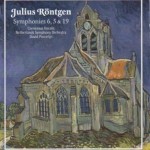
There are many definitions of “freedom” in music beyond the question of whether a work is tonal or not. Julius Röntgen’s harmonic language is conservative

These two piano concertos date from an earlier period than the two violin concertos already released in this series. Piano Concerto No. 2 was composed
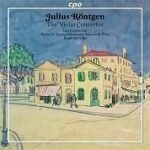
Liza Ferschtman plays these two concertos (and the Ballad) very beautifully, and they are truly lovely works. The Concerto in A minor (1902) has two
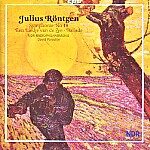
Julius Röntgen’s 18th Symphony was composed in the early 1930s, but you’d never know it from its resolutely tonal melody, neo-baroque formal cast (the second
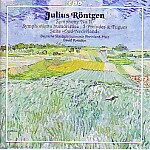
Julius Röntgen was one of those composers whose joy in music is evident in everything he wrote. Criticized in his lifetime for his lack of
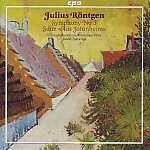
CPO begins yet another new and exciting series dedicated to a little-known but worthy composer. German/Dutch composer Julius Röntgen (1855-1935) wrote a huge quantity of

In a market besieged by repertoire duplication, who wouldn’t desire world-premiere recordings of terrific, virtually unknown music? That’s exactly what we get on this disc
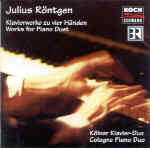
If you’re in the market for piano duets that blend the complacent craftsmanship of Mendelssohn’s Songs without Words with Schumann’s lyrical urgency and obsessive dotted
![]()
